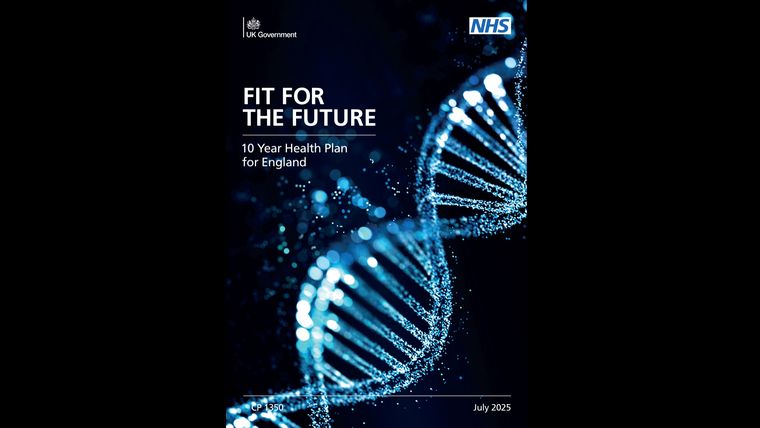Posted By: Amy Tubb
8th July 2025
3 minute read

The Prime Minister has unveiled ‘Fit for the Future’, a long-awaited 10-year vision for the future of NHS healthcare in England. The plan has three key shifts towards prevention, community-based support, and the use of new technology. But what could it mean for the mental health of women, birthing people, and their families during and after pregnancy?
A key commitment is to deliver a rapid national investigation into NHS maternity and neonatal services, ordered by the Health and Social Care Secretary. This is a vital opportunity to hear directly from families about their experiences and the lasting impact of unmet needs.
The plan also confirms ongoing support for Start for Life and the expansion of Family Hubs, which are both welcome and necessary. Family Hubs have huge potential to make mental health support a routine part of maternity care, and to create more joined-up, accessible services through collaboration with the voluntary and community sector. These need to be available in all areas of the country.
The Maternal Mental Health Alliance (MMHA) is pleased to see a clear commitment to tackling health inequities, which is crucial for improving outcomes for all families. But to turn ambition into action, we need co-produced plans shaped by lived experience, which are backed by clear targets and timeframes.
Given how many women’s perinatal mental health problems still go unrecognised and unsupported, it was disappointing not to see a stronger commitment to putting mental health on an equal footing with physical health, or to delivering fairer, long-term funding that ensures truly holistic care.
Perinatal mental health support isn’t just a ‘nice to have’, it’s one of the most powerful forms of prevention. Left untreated, these conditions cause avoidable suffering and cost society an estimated £8.1 billion every year. Compassionate perinatal mental health care creates lasting change, supporting women to recover and helping to give babies the best start in life. The 10 Year Health Plan must harness this opportunity.
To deliver real change, we need a well-supported, trained and resourced workforce. Currently staff face enormous pressures, services are struggling to recruit and retain sufficient healthcare professionals, and this has an impact on the workforce and on the care they can deliver.
Recent years have seen encouraging progress, thanks to bold ambitions in the previous NHS Long Term Plan to improve specialist perinatal mental healthcare. We cannot afford to lose momentum when suicide remains the leading cause of maternal death between six weeks and one year after pregnancy.
Challenges around funding, staffing, and estates have created barriers to delivering the care families need. And stark inequities remain: families from racialised communities, women experiencing domestic abuse, and those living in poverty continue to face the highest hurdles and the worst outcomes.
To shape a better future, this plan must be supported by a detailed and bold implementation roadmap with commitments to:
The MMHA is committed to working with government, our members, Lived Experience Champions, healthcare professionals, and commissioners to turn ambition into action. Together, we must ensure that the 10 Year Health Plan and the maternity investigation deliver the meaningful change needed so that all women, birthing people, babies, and families receive the mental health care they need and deserve.